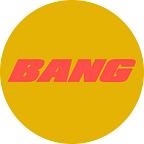How to Take Control
The Stoics are so hot right now
Those Ancient Greek philosophers are everywhere these days with their no nonsense wisdom. Thank Ryan Holliday, I guess. I’m happy but have one concern: I suspect that a lot of people are interpreting this work as encouragement to tough their way through everything.
Yes, the Stoics would have definitely wanted you to harden up. But I believe that they had a more fluid kind of toughness than people may realize.
If you read Epictetus’ Discourses, you’ll get as close to the spoken word as we can hope to (a student recorded ole Tetus’ lectures). I would describe his tone as… Sassy.
I have met many legitimately tough people in my life — and many pretend-tough ones. The gap is palpable. It’s the same as the gap between the 20-year-old guys pitching me crypto on my newsfeed vs real successes.
One of the issues with chasing hard things is that they tend to dominate our vision. I’ve written before on how an over-emphasis on suffering winds up dictating the geography of your inner world.
I want to be clear that I think that the skills of mental resilience are really important. Just like strength is really important. However, if I use that strength to swing every door the wrong way, I may not have a strength reserve for higher ROI tasks. Discipline is a precious commodity; I don’t recommend squandering it on unnecessary battles.
Willpower is the same thing
What I am ultimately advocating for is the development of mental resilience BUT also a real intentionality in how it’s used.
As an experiment, I am currently working on a kettlebell challenge that I personally consider to be very hard. This is something I’ve completed before by completely leaning into mental toughness. The achievement for me was meaningful but the experience sucked. This time, I want to see if I can get to a place where the work always, always feels doable and I am never suffering.
Some people might interpret that as being soft. Ok. Yet, we have to recognize that the suffering piece is largely a mental construct. It is a lens. So, I don’t wear that lens.
Has that made me less tough? Actually, I’ve found that I can perform harder and harder things with a relaxed state of mind. I recently had a training session that felt… Wait for it… Fine. Not easy; just not horrible. It was a milestone, though, because I delivered a level of work that I had never been able to do before without looking like I had just swallowed broken glass. Same physiological experience; different emotional experience. And guess what? I can still dig in if I have to… I just don’t have to as much. That strength is in reserve.
There are two related concepts that I want to unpack here.
Concept 1: Your Circle of Control
This is the academic version of the Serenity Prayer. It describes the stuff that you have true control over in your life. Your circle of control is the stuff you can influence — to greater or lesser degrees — but can’t definitively call the shots on. Then there’s everything else. Like the time it takes you to get from Point A to Point B in rush hour.
Concept 2: Your Internal Locus of Control
This is what you perceive yourself as having agency over. It may not correlate to reality. People who blame externalities for their problems often miss the parts that they have control over. So, they will typically have a smaller internal locus of control. The things they perceive as having control over may actually be less than the reality. This is the classic situation where someone says, “I was driving along and all of a sudden, a tree jumped up and hit my car!” As if they were just a bystander and not actually driving the car. Take it to the extreme and you produce learned helplessness. I suppose it can go the other way too. You can perceive yourself as having more control over a situation than you actually do. Like, oh I don’t know… Bum rushing the US Capitol in order to change the results of an election. This is, of course, a totally made-up example.
Willpower can be rigid
One of the drawbacks of a willpower-focused strategy is that it can focus on what’s hard, rather than the best use of your abilities and control. To be clear, if you’ve never truly worked hard at something and finally pull that lever, the results will probably be transformative. Working hard actually will take a lot people further than working smart. But there are diminishing returns. From my perspective, the goal is to work sustainably hard (in other words, to avoid burnout) and combine that with the leverage point of working smart. You need both to do great things. Smart, to me, means using the least effort in the most places. And the most effort in the places where it really makes a difference. This is where skill development and habits come in. To illustrate the difference between these approaches, I made you a cute little infographic.
As you might have guessed from the images at top, the goal here is for your internal locus of control to grow to match your actual reality — or at least its potential. Yes — that’s one final but important point. This piece is more malleable than you might expect. 1% improvement is a powerful phenomenon.
